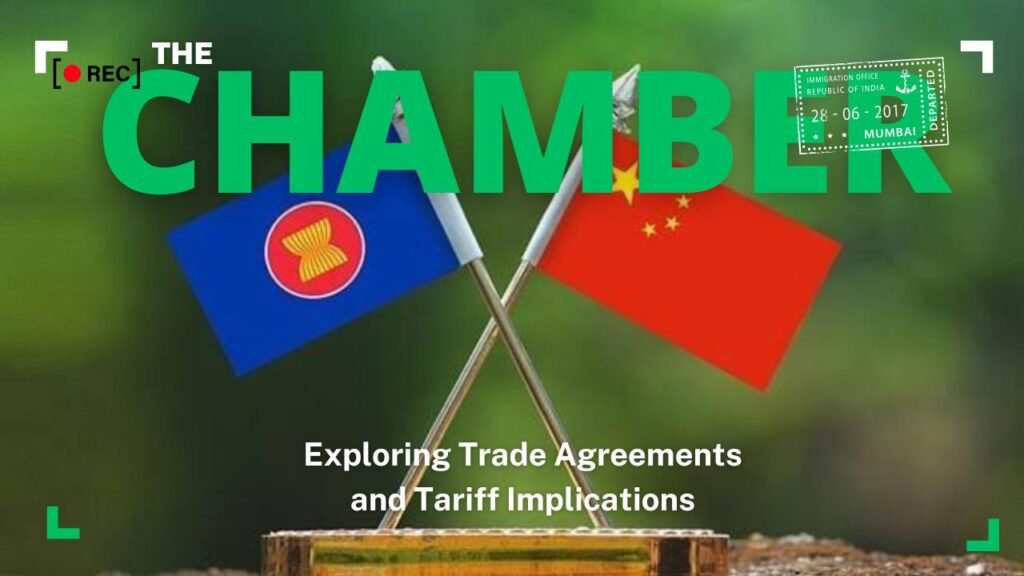Welcome aboard, traders! Let’s explore the complex realm of international trade agreements and their tariff impacts. In today’s global economy, grasping trade dynamics is vital for businesses to sail confidently. Join us as we uncover the profound implications of trade agreements, guiding businesses towards success on the seas of commerce.
Trade agreements are essential for nations for several reasons. Firstly, they drive economic growth by reducing tariffs and barriers, boosting trade volumes and market access. Secondly, they spur job creation across sectors like manufacturing and services, meeting increased demand. Thirdly, they enhance competitiveness by promoting efficiency and specialization, thus cutting costs and boosting productivity. Additionally, they provide access to crucial resources, supporting domestic industries. Moreover, they foster innovation exchange and benefit consumers with lower prices and wider choices. Lastly, they strengthen diplomatic ties, shaping economic prosperity, job creation, innovation, and diplomatic relations globally.
Understanding Trade Agreements
Understanding Philippine trade agreements is vital for navigating the nation’s international trade dynamics. These agreements govern trade terms with other nations or blocs, impacting various economic aspects. By analyzing these agreements, individuals and businesses can grasp import/export tariffs, quotas, and regulations, facilitating strategic decisions and improving competitiveness.
Additionally, comprehension of these agreements offers opportunities to access new markets, leverage preferential treatment, and expand operations. Moreover, insight into the implications of these agreements sheds light on the country’s economic priorities, diplomatic ties, and global standing, crucial for stakeholders aiming to succeed in the dynamic international trade landscape.
Subscribe to the MyCCBI365 newsletter
Can a nation Survive without Trade Agreements?
Certainly, a nation can function without trade agreements, but the consequences vary based on factors such as resource availability, economic structure, and geopolitical context. Countries may sustain themselves through domestic production, subsistence farming, or natural resource exploitation, bypassing formal trade deals. However, this isolationism may hinder access to foreign goods, technology, and markets, potentially stunting economic progress.
Moreover, nations lacking trade agreements might encounter challenges in diplomacy and securing vital imports or exports. While survival without trade pacts is possible, it limits economic cooperation and global integration, impacting long-term prosperity and stability. Let’s delve deeper into trade agreements and their tariff implications.
The Implications
Accessing Markets Unlocked: Trade agreements act as pathways to broader market reach, ushering businesses into new realms of opportunity and expansion. By reducing or abolishing tariffs on imports and exports, these agreements streamline trade flows, fostering economic growth. For businesses, this translates into heightened competitiveness, expanded market share, and broader customer outreach.
Fueling Competitiveness and Innovation: Beyond market entry, trade agreements ignite competitiveness and innovation by nurturing healthy competition and promoting specialization. With diminished trade barriers, businesses are incentivized to innovate, enhance efficiency, and invest in research and development. This not only enriches consumers with greater product diversity and quality but also fortifies industry competitiveness within participating nations.
Navigating Tariff Complexity: Nonetheless, the journey through trade agreements presents challenges, notably in comprehending and navigating intricate tariff regimes. Tariff implications vary based on agreement terms, product categorization, and origin country. Businesses must meticulously examine tariff schedules and rules of origin to optimize supply chains, minimize expenses, and ensure compliance with customs regulations.
Strategic Insights for Businesses: In today’s ever-evolving trade landscape, businesses must embrace a strategic mindset to effectively harness the benefits of trade agreements. This entails comprehensive market analysis, evaluating competitive environments, and identifying growth prospects within preferential trade regions. Moreover, staying informed about trade negotiations is crucial for adapting strategies to seize emerging opportunities and mitigate risks proactively.
Navigating Turbulence: Amid geopolitical tensions and trade disputes, businesses confront heightened uncertainty globally. While trade agreements offer stability, they are susceptible to geopolitical shifts and policy adjustments. Agility is paramount; businesses must diversify supply chains, explore alternative markets, and remain responsive to evolving trade dynamics to safeguard their interests effectively.
Conclusion: It becomes clear that trade agreements are crucial in shaping the global economy and impacting business strategies. By comprehending their implications and strategically navigating tariff regimes, businesses can seize new opportunities, enhance competitiveness, and confidently navigate international trade complexities. Fair winds and prosperous journeys await those who boldly navigate the trade winds of the 21st century.
Prof. Jessica Pascual, Lcb, Mba, Mca









